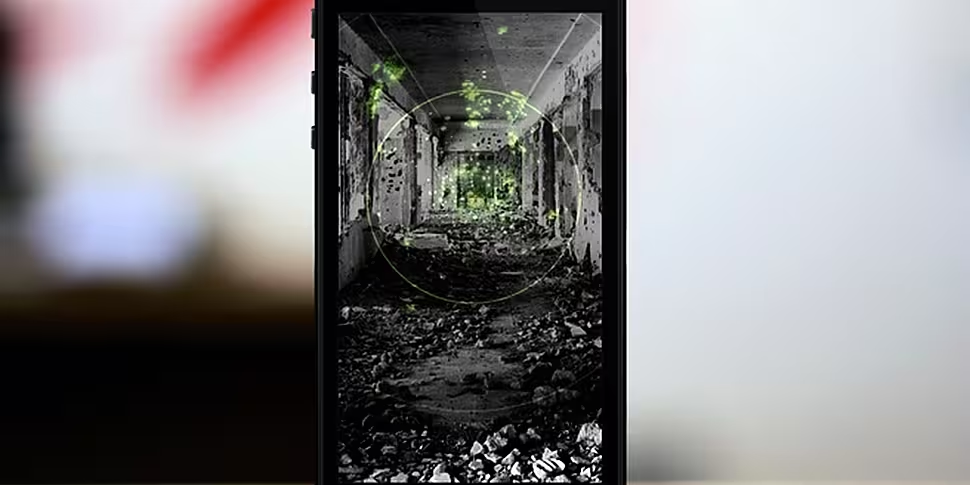Newstalk Magazine is available now for free from the Apple app store.
Generally when armed battles erupt, locals rely on friends and family for the latest news on which roads are safe, and which neighbourhoods to avoid.
But a number of entrepreneurs in Lebanon are creating smartphone apps that can help people stay informed and safe. One such app is called ‘Happin’ which maps incidents of violence and dangerous areas.
Happin App
Samantha Barry, Social Media Producer with BBC World Service compares the science behind these apps to the likes of Shazam, an app used by music fans to identify songs, by recording and analysing their acoustic fingerprint and matching them against a database of millions of songs. Now, Barry stresses, these ‘war apps’ are taking it to a whole new level where they use acoustics to look at the muzzle-sound and identify the type of bullet shot.
Lebanese Telecommunications engineer, Firas Wazneh, the brains behind the ‘Way to Safety’ app from the same region, explains how it works, “Once the application is installed on your phone, if you hear a gunshot you log it, along with other users. The idea is that the source location of gunfire can be detected within 30 seconds through the use of sound triangulation and sound pattern recognition.
‘Way To Safety’ app creator, Firas Wazneh

“The time that the sound signal arrives will determine the location of the shooter. Hopefully the pattern recognition will identify the type of weapon used and the number of bullets fired.”
This type of technology is already used by police in the United States (namely The Chicago Police Department) through companies like ShotSpotter, but up until now has proven to be prohibitively expensive with a high dependency on infrastructure. To improve accessibility and scalability, Wazneh and other app creators use existing telecommunications infrastructure, making it available for use globally without the need for maintenance, electricity and other sensors. But the question is, how much interest is being shown in products like ‘Way to Safety’ and what is the cost?
“Most of the apps in these areas that gain any sort of traction are crowd-sourced apps,” says Barry, “they are dependent on a lot of people getting involved in mapping and reporting gunfire as well as incidents of sexual assault—similar to those used during the violent protests in Tahrir Square in Egypt.” But like social media giant Twitter, you need a lot of people on board in order for it to really hold any value. Wazneh is confident however, that in areas of conflict people will download his app and points out that, “only 20 users are necessary in a square mile area in order for it to work.”
More interestingly perhaps, is that social apps are being used across the border by both the Syrian army and the rebels as well. The latter have even created their own app, the name of which translates as ‘Only You’. It creates maps of Syria that track the number of deaths in certain villages and towns.
New technology is changing the way in which conflict is being played out, however, it’s not just people in the region that are driving adoption. App-enabled verification and analysis of data is happening closer to home.
UK based blogger Elliott Wiggins has become an expert on weaponry in Syria. Working from his living room in Leicester, Wiggins analysed four hundred YouTube channels, collating masses of data on armoury and weapons systems in use in Syria. He did it of his own free will and has made no financial gains from his research.
Closer to the frontline, Wazneh and his counterparts are hoping to create some good from the terrible conflict and atrocities happening around them in Lebanon, but frequently encounter “bureaucracy” in their attempts to develop their product. They have even approached the Ministry of Defence to gain access to a shooting range in order to record and enhance their database of sounds, but so far they’ve been blocked.
Just last month the Lebanese army launched their app, ‘LAF Shield’. One of the most useful features available on the application is for victims of kidnapping—it provides a direct communication route to the country’s military command.
These apps bring pragmatic benefits to the people of war-torn countries like Lebanon who have been living with civil war for many years. Better information means increased safety for its users. “Now this knowledge of who is shooting will go directly to the security agencies and the media so that something will be done,” says Wazneh. Whilst world leaders remain indecisive about a resolution to the conflict, local entrepreneurs are taking up the mantle themselves, effecting real change and potentially saving lives.
This article originally appeared in Newstalk Magazine for iPad in September, for more details go here.









